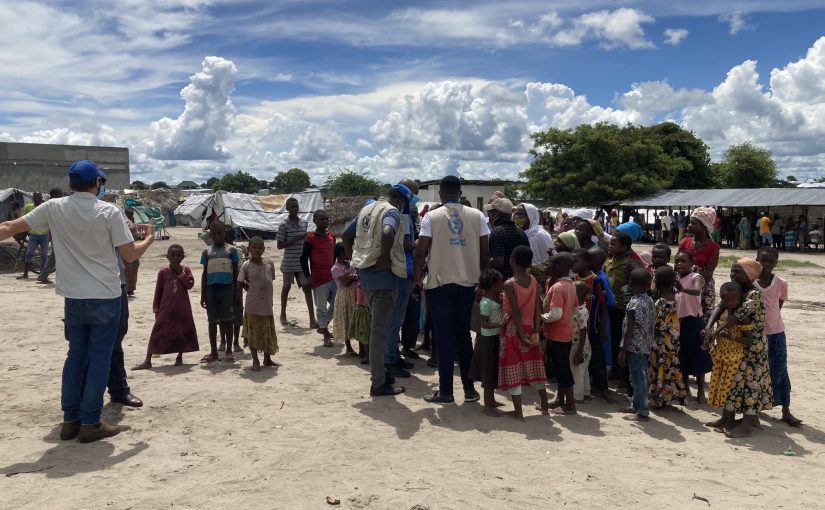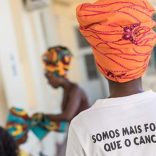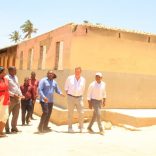Mozambique: Nampula marks 10 years of the Laudato Si
WFP Mozambique Country Brief, September 2022

FILE - For illustration purposes only. [File photo: WFP Mozambique]
In Numbers
- 1,086,404 people assisted in September 2022
- 1,208 mt of food assistance distributed
- US$ 3.98 million in cash-based transfers
- US$ 92 million six-month (October 2022 – March 2023) net funding requirements
Emergency Response
Northern Mozambique Displacement Crisis
• WFP continued to provide life-saving food assistance to the affected people in northern Mozambique. WFP has reached over one million people in the August-September distribution cycle.
• WFP was forced to halve the food aid to families to less than 40 percent of the minimum daily caloric needs from April to October 2022 by doing bimonthly food distributions, due to a funding shortage to continue reaching an increasing number of people and to avoid a disruption of assistance.
• WFP’s humanitarian assistance is at risk of ending in January – the peak of ‘lean’ season – if new funds are not received. WFP needs US$ 59.1 million to continue delivering life-saving food and nutrition to one million people from January to March 2023 in the north.
• WFP has increased its humanitarian assistance while supporting the transition to resilience building to address root causes of food insecurity, helping 40,000 people to rebuild their livelihoods in the north. Until April 2023, WFP plans to reach 160,000 people.
• In September 2022, the WFP-led United Nations Humanitarian Air Service (UNHAS) transported 1,141 passengers and 13.6 mt of cargo. Thirty-one (31) organisations used the service (19 NGOs and 12 UN).
Seasonal Forecast October – March 2022
• From October 2022 to March 2023, normal rainfall with a tendency to above normal is expected in the southern and central areas of the country. Warmer than normal temperatures are also expected in Cabo Delgado and Nampula from January to March 2023. In hydrological terms, high risk of flooding in Savane basin is expected from October to December. From January to March 2023, a moderate to high risk of flooding is expected in the Búzi, Púngoè, Megaruma, Montepuez and Messalo basins, and a high risk of flooding in the Savane, Namacurra,
Licungo and Raraga hydrographic basins.
Social Protection
• WFP has been supporting the National Institute of Social Action to provide electronic cash transfers to 88,000 urban families affected by the COVID-19 pandemic. In Tete, 16,000 families (80,000 pp) received cash entitlements in 2021 via mobile money. In Zambezia 72,000 families (360,000 pp) will receive their entitlements by October 2022.
WFP started the implementation of the response covering over 37,300 families in Niassa province.
• WFP continues to support national institutions (in particular INAS, and INGD – the National Institute for Disaster Risk Reduction) in using social protection programmes to respond to natural shocks and seasonal food insecurity. This is being undertaken by strengthening the capacities of INAS to engage in early warning systems being developed by INGD, for example, for drought response. Currently, WFP is supporting the Ministry of Gender, Children and Social Action (MGCAS) in organizing an Institutional Coordination Workshop between MGCAS, INAS and INGD and a technical session for experience sharing on the COVID-19 response with a specialist from the International Policy Center for Inclusive Growth (IPC-IG), aiming to expand the coverage of the social protection system in the response to COVID-19.
- To read, download the full report, please click HERE.












Leave a Reply
Be the First to Comment!
You must be logged in to post a comment.
You must be logged in to post a comment.